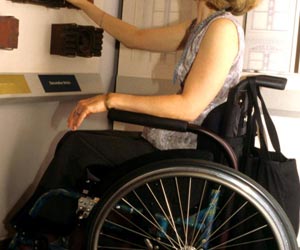Therapeutic riding improves balance, motor function, posture, gait, muscle symmetry and pelvic movement in people with neuromotor disabilities.

‘Equine-assisted activities are a viable intervention option for people with impairments in balance, gross and fine motor function, gait, spasticity, and coordination.’





Evidence Supports Benefits of Therapeutic Riding and Hippotherapy
The researchers reviewed and analyzed previous studies of horseback riding interventions for patients with various types of motor (movement) dysfunction - for example, cerebral palsy, multiple sclerosis, and stroke. A comprehensive review identified 16 studies evaluating two types of interventions: therapeutic riding, defined as some type of adaptive or modified horseback riding with a therapeutic goal; or hippotherapy, which uses the movement of the horse for therapeutic purposes.
Eight studies assessed the effects of equine-assisted therapies for children with cerebral palsy, including a total of 434 patients. Four studies evaluated the use of these interventions to improve mobility in older adults with multiple health problems and disabilities, 90 patients; and three studies addressed patients with multiple sclerosis, 52 patients. One study, including 20 patients, assessed the use of hippotherapy for patients after a stroke.
The results suggested that therapeutic riding or hippotherapy had a "significant positive impact" in all groups of patients studied. Individual studies reported small but significant improvements in outcomes such as balance, motor function, posture, gait, muscle symmetry, pelvic movement, psychosocial factors, and quality of life.
Eight studies provided sufficient data for pooled analysis (meta-analysis) of specific measures of balance and gross motor function. On a measure of balance, the effects of therapeutic riding were not significantly greater than for other types of therapy. There was evidence of positive effects on several dimensions of gross motor function, but no statistically significant effect on the overall motor function score.
Advertisement
Within these limitations, the available evidence suggests that therapeutic riding and hippotherapy can be beneficial for patients with neuromotor disabilities. The studies show improvement on measures of walking and gross motor function in children with cerebral palsy. The research also provides evidence of increased balance and leg muscle strength in older adults, including stroke survivors.
Advertisement
Source-Eurekalert









